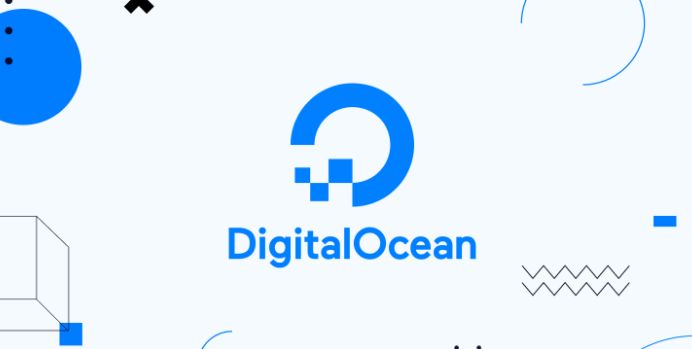Reasons to Use Digital Ocean – DigitalOcean is a cloud infrastructure provider that was founded in 2011. DigitalOcean was founded by Moisey Uretsky, Ben Uretsky, Jeff Carr, and Alec Hartman.
The company was launched with the goal of providing developers with an easy-to-use and cost-effective platform for deploying and managing applications in the cloud.
DigitalOcean launched its public beta, making its cloud services available to a wider audience. The company gained attention for its simplicity, user-friendly interface, and competitive pricing.
DigitalOcean continued to grow in popularity, attracting developers, startups, and small businesses. The company’s focus on providing virtual private servers (Droplets) with easy scalability resonated well with its target audience.
DigitalOcean secured $37.2 million in Series A funding, allowing the company to expand its services, improve its infrastructure, and invest in customer support.
The company introduced features such as floating IPs, private networking, and block storage to enhance the capabilities of its platform. These additions made DigitalOcean more versatile for a range of use cases.
DigitalOcean launched the “Spaces” service, providing scalable object storage for developers to store and serve large amounts of unstructured data.
DigitalOcean introduced Kubernetes as a service, allowing users to deploy and manage containerized applications using Kubernetes.
The company expanded its offerings beyond infrastructure services by introducing the “App Platform,” a platform-as-a-service (PaaS) solution that simplifies the deployment and management of applications.
DigitalOcean continued to innovate and grow its customer base, emphasizing the importance of user-friendly interfaces and developer-centric features.
Reasons to Use Digital Ocean Server for Websites and Business
DigitalOcean’s history is characterized by its commitment to providing accessible cloud services for developers and businesses. The company’s focus on simplicity, scalability, and competitive pricing has contributed to its popularity within the developer community.
DigitalOcean is a cloud infrastructure provider that offers a range of cloud computing services to help individuals and businesses deploy, manage, and scale applications.
What is DigitalOcean Used For?
It provides a user-friendly platform for developers, startups, and businesses to host and manage their applications, websites, and services. Here are some common uses of DigitalOcean:
- Web Hosting: DigitalOcean allows users to deploy websites, web applications, and blogs on virtual servers known as “Droplets.” Users can choose different configurations based on their resource requirements.
- Application Hosting: Developers can host a variety of applications, including content management systems (CMS), e-commerce platforms, and custom applications on DigitalOcean’s infrastructure.
- Development and Testing: DigitalOcean is often used as a platform for developing and testing applications. Developers can create virtual environments to build, test, and debug their software before deploying it to production.
- Scalable Services: DigitalOcean provides scalable solutions that allow businesses to grow their online presence as needed. They can easily add more resources, such as CPU, RAM, and storage, to accommodate increased traffic and demand.
- Database Hosting: Users can set up databases, both SQL and NoSQL, on DigitalOcean’s servers. This is useful for storing and managing application data.
- Containerization: DigitalOcean offers a Kubernetes-based container orchestration service called “Managed Kubernetes,” allowing users to deploy and manage containerized applications at scale.
- Networking Services: The platform provides networking tools such as load balancers, firewalls, and private networking to enhance application performance, security, and connectivity.
- Data Storage: Users can utilize DigitalOcean’s block storage and object storage services for data storage needs, including storing backups, files, and images.
- App Deployment: DigitalOcean’s “App Platform” simplifies the process of deploying and managing applications by handling infrastructure management tasks. It supports various programming languages and frameworks.
- IoT and API Hosting: DigitalOcean can be used to host internet of things (IoT) applications and APIs, enabling devices and software to communicate seamlessly over the internet.
- Data Analytics: Businesses can use DigitalOcean to host data analytics platforms, data processing pipelines, and visualization tools.
DigitalOcean’s user-friendly interface, cost-effective pricing, and variety of services make it a popular choice for developers and businesses looking for cloud solutions to host, manage, and scale their applications and services.

Yes, DigitalOcean primarily offers a service known as “Droplets,” which are virtual private servers (VPS) hosted on their cloud infrastructure.
Is DigitalOcean a VPS?
A Droplet is essentially a virtual machine instance that you can deploy on DigitalOcean’s platform. It provides users with their own isolated environment, including dedicated CPU, memory, storage, and an operating system.
Here are some key features of DigitalOcean’s Droplets (VPS):
- Isolation: Each Droplet operates in its own isolated environment, providing security and stability similar to traditional physical servers.
- Customization: Users can choose from various Droplet plans with different levels of CPU, RAM, and storage, allowing them to select a configuration that matches their requirements.
- Operating System: Users can choose from a variety of operating systems, including various Linux distributions and pre-configured application images.
- Scalability: Droplets can be easily scaled up or down by resizing or adding additional resources, enabling users to adapt to changing traffic and resource needs.
- Root Access: Users have full root access to their Droplets, allowing them to install and configure software, manage security settings, and customize the environment to their needs.
- Networking: Droplets come with options for private networking, firewalls, and load balancers to enhance network security and performance.
- Snapshots and Backups: DigitalOcean offers snapshot and backup features that allow users to capture the current state of their Droplets, making it easier to restore or duplicate instances.
- Cost-Effective: DigitalOcean’s VPS solutions are known for their affordability, making them suitable for individual developers, startups, and small to medium-sized businesses.
While Droplets are a core offering of DigitalOcean, the platform also provides additional services beyond VPS hosting, such as managed Kubernetes, managed databases, object storage, and a platform-as-a-service (PaaS) solution called “App Platform.”
These services extend DigitalOcean’s capabilities to cater to a broader range of application deployment and management needs.
Is DigitalOcean Free to Use?
DigitalOcean offers both free and paid services. They have a pricing model where users can choose from various plans based on their resource and feature requirements. Here’s an overview of DigitalOcean’s pricing structure:
- Free Services: DigitalOcean provides a limited offering of free services to users. For example, new users often receive a certain amount of free credit when they sign up, allowing them to try out the platform without immediate charges. These free credits can be used to explore and test DigitalOcean’s services.
- Paid Plans: DigitalOcean offers a range of paid plans for their services. The most popular service is the Droplets, which are virtual private servers (VPS). The cost of these Droplets varies based on the resources you select, such as CPU, RAM, and storage. Other services like managed databases, Kubernetes clusters, and object storage also come with their own pricing tiers.
- Usage-Based Billing: DigitalOcean charges users based on their usage of resources. This means that the cost will depend on the resources you consume and the duration for which you use them.
- App Platform: DigitalOcean’s App Platform, a platform-as-a-service (PaaS) offering, also comes with free and paid plans. The free plan includes a limited set of features and resources, while paid plans offer more resources and capabilities.
- Data Transfer and Storage: Be aware that costs can also be influenced by factors such as data transfer (bandwidth) and storage usage.
It’s important to carefully review DigitalOcean’s pricing details on their official website to understand the costs associated with the specific services you intend to use.
While they do provide some free services initially, sustained usage and additional features will typically involve charges based on the services you select and the resources you consume.
Digital Ocean Vs AWS Amazon Web Servers
The decision to use DigitalOcean or Amazon Web Services (AWS) depends on your specific needs, preferences, and the nature of your projects.
Both platforms offer cloud computing services, but they have different features, pricing models, and target audiences. Here are some reasons you might consider using DigitalOcean over AWS:
1. Simplicity and Ease of Use:
- DigitalOcean is known for its user-friendly interface and straightforward setup process. It’s often preferred by individual developers, startups, and small businesses who want to quickly deploy applications without the complexity of larger cloud providers like AWS.
2. Cost-Effectiveness:
- DigitalOcean’s pricing structure is often considered more transparent and affordable, especially for smaller projects. Its pricing is designed to be more predictable, and it offers a flat-rate pricing model for its Droplets (virtual machines).
3. Predictable Pricing:
- DigitalOcean’s pricing is more straightforward and easier to estimate compared to the usage-based pricing model of AWS. This can be particularly advantageous for small businesses or projects with limited budgets.
4. Focus on Developers:
- DigitalOcean is developer-focused and aims to provide tools and services that cater specifically to developers’ needs. This includes features like easy deployment, pre-configured images, and helpful documentation.
5. Quick Deployments:
- DigitalOcean’s Droplets allow for rapid deployment of virtual machines. This can be advantageous for applications and websites that need to go live quickly.
6. Less Complexity:
- AWS offers an extensive range of services, which can be overwhelming for smaller projects. DigitalOcean provides a more curated set of services, making it easier for newcomers to cloud computing to get started.
7. Scalability for Smaller Projects:
- If you have a smaller application or website with less complex infrastructure needs, DigitalOcean’s offerings might be sufficient and more cost-effective.
It’s important to note that while DigitalOcean offers simplicity and cost-effectiveness, AWS offers a broader range of services, scalability, and resources for enterprises and larger projects.
AWS is suitable for businesses requiring extensive customization, complex infrastructures, and advanced features like machine learning, IoT, and big data analytics.
Ultimately, the decision depends on your project’s requirements, budget, technical expertise, and growth plans. Some businesses even use a combination of both platforms for different purposes.
It’s recommended to thoroughly evaluate your needs and the features offered by both providers to determine which one aligns better with your goals.









